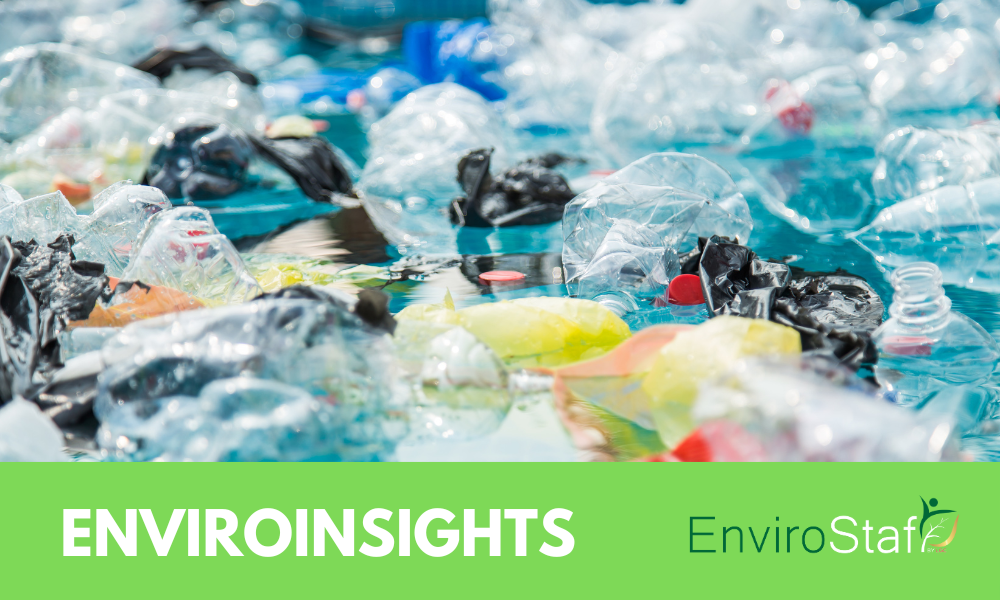Dive into the dark reality: microscopic plastic particles now infiltrate our bodies, a grim reminder of the increasing reach of plastic pollution. As the world grapples with this crisis, the call for change grows louder. Which side of history will you stand on?
The last 3 weeks of April we have been talking about environmental issues and actionable solutions.. This year’s theme for Earth Day is Planet vs. Plastic, which aims to raise awareness through a radical approach that demands a 60% reduction in plastic production by 2040. With the sheer volume of plastic produced every day, it’s going to take a village.
A Circular Systems Approach

Adapted from UN Environment Programme 2023 Report
The UN Environment Programme’s “Turning off the Tap” report outlines what a complete system switch would look like.
The results of the transition would shift from the “business-as-usual” approach, where 227 million metric tons are misplaced in oceans, to a “circular economy,” where 95 million metric tons are reused in the production process, yielding a huge drop to just 41 million metric tons misplaced in oceans.
The future hope is to work towards zero waste in oceans, but you have to start somewhere.
The vision of this transition is one where unnecessary plastic production is reduced and instead keeps materials in the economy to be reused, resulting in fewer greenhouse gases in the atmosphere. This solution isn’t just about mitigating the effects; it’s about transforming the very foundation of our consumption habits.
So, what does this mean for a business like yours? It’s about reimagining your operations and embracing innovative strategies:
5 Ways to Reuse For Businesses

How to Reuse for Businesses
- Buy in bulk: You’re inevitably going to order supplies you need. So, order everything at once with less packaging. Less plastic, less paper, less waste.
- Reusable containers: Those Styrofoam take-home containers are great in theory, but they take hundreds of years to decompose, and they often end up hurting wildlife. Invest in reusable containers or paper-based containers that can be recycled.
- Prioritize durability over quantity: The global economy is fast-paced and it’s hard to keep up. You probably feel rushed to get products out to the world. But what are you compromising to meet that deadline? If you prioritize quantity over quality, not only is the life of that product significantly shorter, but it’s costing you more money overall to continue to fix or replenish the product. So, invest in more durable goods to extend the life of materials so they won’t pile up in waste areas over and over again.
- BYOB incentives: Grocery stores and retail brick-and-mortar shops can benefit from adopting a “bring your own bag” incentive. Encourage customers to take an active role in reducing waste by implementing a discount option for bringing a reusable bag. They save money and want to come back for more.
- Start a “buy-back” program: Resale is a huge trend right now. As a business, your customers will provide you with inventory to add to your supply. You get to decide how much you’re going to buy them back for and how much you turn around and sell them for. This is a great strategy for retail stores to adopt because customers love a clever way to make some extra cash and it builds brand loyalty.
By implementing these changes, businesses can pave the way for a more sustainable future, one where wildlife thrives, air quality improves, and our planet flourishes. This Earth Day let’s turn the tide together and create a world where every action counts.
Want more EnviroInsights? Check out the rest of our series:
Keep up with all things LGC and EnviroStaff on our socials!
About EnviroStaff
EnviroStaff is a division of LGC that focuses on making placements in the environmental industry. We build partnerships with clients to fill open positions on their team and have recruiting capabilities within multiple markets throughout the U.S. Working closely together, EnviroStaff will recruit environmental industry professionals based on your job description and requirements. By making direct hire placements, EnviroStaff can help clients save time and money often associated with recruiting.





